Supreme Court agrees to hear arguments on Biden’s student loan plan, closing in on a resolution
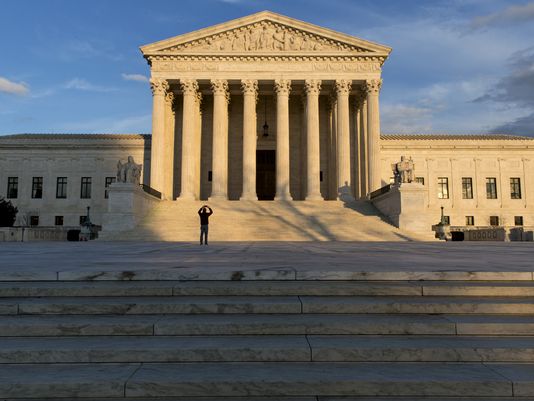
Thursday’s Supreme Court hearing will be devoted to President Joe Biden’s student loan forgiveness program. This is a significant step towards resolving months-long legal battles over whether the administration exceeded its authority in deciding to erase debt owed to tens or millions of Americans.
The high court issued a short order preventing the program from being implemented. This means that Biden will not be able to implement loan forgiveness until the Supreme Court rules next spring. According to the court, it will hear arguments in the litigation by February.
Six conservative states, including Arkansas, Iowa and Kansas, Missouri and Nebraska, told the Supreme Court that Biden exceeded his legal authority by implementing the program. They also alleged that Biden violated the constitutional principle separating powers by entering into a loan forgiveness program that would affect 40 million Americans.
Biden enacted the HEROES Act debt relief plan. It was created after the attacks on September 11, 2001, which triggered an American-led military campaign to combat terrorism. According to the administration, the act grants the president the authority to forgive student loans in connection with military operations or national emergency.
|
According to the Department of Education, the law permits loan forgiveness for Americans who are facing financial hardship due to the COVID-19 pandemic.
Although the court denied the administration’s request to temporarily revive it while it considered the case, the Biden administration has already extended a pause in student loan payments until June 30, 2023.
Is the Supreme Court going to rule soon on loan forgiveness?
Biden’s appeal began on the Supreme Court’s Emergency Docket. This docket is where cases are usually decided in days or weeks. The high court moved the case to its merits docket by agreeing to hear oral argument. This is the process the high court uses to hear major cases each term.
This process may take longer. Each side will then file a new set of written arguments. The court will then schedule and hear arguments during its February sitting. This period runs from February through March. The justices will then begin the process to draft opinions. The court averaged just four months to draft opinions during the June term. However, this case could take longer.
The term of the Supreme Court usually ends in June.
What has the lower court said about Biden’s plan to forgive loans?
In October, a Missouri federal judge dismissed the state’s request to stop the program. He ruled that the plaintiffs lacked the standing to sue. Although their case presented “important, significant challenges to the debt relief program,” the trial court ruled that the plaintiffs were not entitled to sue.
The Biden administration appealed this decision to the Supreme Court.
Biden’s plan would eliminate student loan debt up to $20,000 for Pell Grant recipients and $10,000 for all other borrowers for those earning up to $125,000 per year, or for any part of a household with total earnings below $250,000.
In a separate case, a U.S. District Court in Texas also stopped the program. Late Wednesday, the U.S. Court of Appeals in New Orleans for the 5th Circuit declined to stop the decision of the Biden administration. This case could also be appealed at the Supreme Court.
This is the third case in which the Supreme Court has heard the loan forgiveness program. On Oct. 20, Associate Justice Amy Coney Barrett rejected an emergency appeal by a Wisconsin taxpayer group. Barrett denied the request to stop the program without explaining, as is often the situation on the court’s emergency docket.
On Nov. 4, she denied another challenge to the program. Two people were entitled to an “automatic” cancellation by a conservative legal group. Plaintiffs claimed that automatic cancellation of debt would lead to “excessive tax liability” under state law.
These earlier denials, which were based on procedural grounds only, give little to no clues as to the court’s opinion about the legality of the loan program. In fact, the 6-3 conservative court majority has been skeptical about presidential administrations’ attempts to approve broad policies without express authorization from Congress.
Questions major: The Supreme Court rejects EPA’s attempt to regulate power plant emissions
In January, the Supreme Court stopped Biden’s COVID-19 mandate for large employers to test vaccines or administer testing. In June, the Supreme Court ruled against an Environmental Protection Agency attempt to reduce power plant emissions. It blocked Biden’s eviction moratorium last year on similar grounds.
These decisions are the culmination of a long-running push by conservatives for a reduction in the “administrative” state. They claim federal agencies should be given less power to act without clear congressional approval. In June, the Supreme Court supported that approach by using the “major question doctrine” to decide climate change cases.
What do they think about the Supreme Court’s order for loan forgiveness?
Karine Jean-Pierre, White House press secretary, tweeted that Thursday’s tweet was a positive endorsement of the Supreme Court’s decision to hear the case regarding the student debt relief plan for working and middle class borrowers.
Doug Peterson, the Nebraska Attorney General, said that he was also pleased by the Supreme Court’s decision.
Peterson stated in a statement that the president tried to cancel student loans for most borrowers, going beyond his legal authority. “We are against the president’s political manipulation of our student loan program right before an election.”




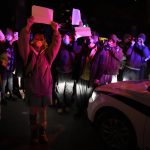
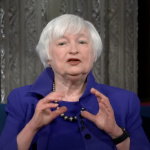
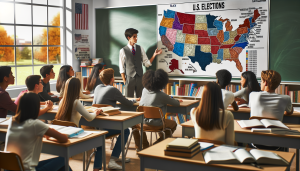
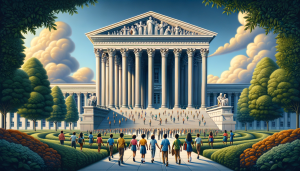


No Comments